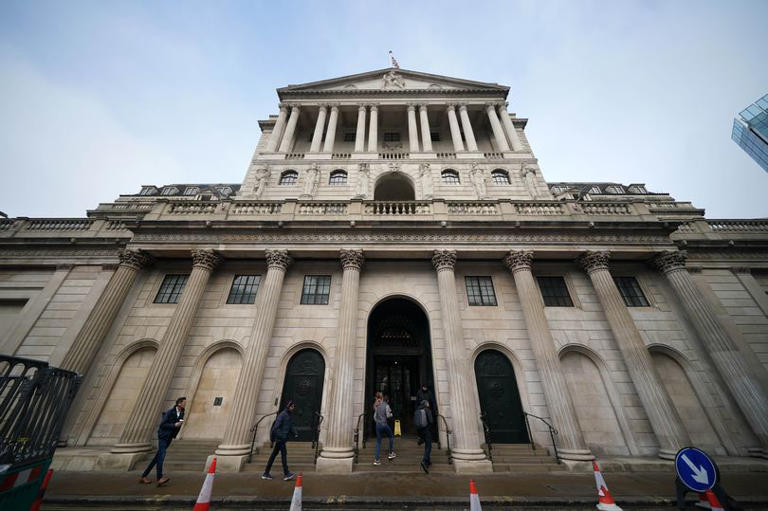State Pension Increase: Millions Set to Receive Boost in April
Learn about the upcoming increase in state pension payments for millions of people in the UK, and the implications of the triple lock mechanism amid financial concerns for pensioners.

State Pension Increase: Millions Set to Receive Boost in April
In April, millions of people in the UK are poised to see a welcome boost in their bank accounts, thanks to an increase in state pension payments. This long-awaited adjustment, mandated by the triple lock mechanism, aims to provide financial relief amid ongoing concerns about the rising cost of living.
Understanding the Triple Lock Mechanism
The state pension increase is made possible by the triple lock mechanism, a commitment by the government to annually raise state pensions by the highest of three factors: average earnings growth, Consumer Price Index (CPI) inflation, or a minimum of 2.5 percent. This ensures that pensioners’ income keeps pace with the evolving economic landscape, shielding them from the erosive effects of inflation and economic fluctuations.
New Weekly Rates
Starting from April, the new weekly rates for the full new state pension are set to rise to £221.20, marking an increase of £17.35 per week compared to the previous rate of £203.85. Similarly, the old or basic state pension will see an uptick to £169.50 per week from £156.20, representing a £13.30 increase. These adjustments translate to a significant annual increment in pension income, providing much-needed relief for retirees.
Impact on Pensioners
For those receiving the full new state pension, the annual increase amounts to £902, significantly enhancing their financial security in retirement. This additional income can alleviate the strain caused by rising living costs, enabling pensioners to better meet their everyday needs and maintain a decent standard of living. However, despite these positive developments, concerns persist regarding the financial well-being of older individuals, particularly those reliant solely on state pensions and benefits.
Addressing Financial Insecurity
While the state pension increase is a step in the right direction, it may not fully address the underlying financial insecurity faced by many pensioners. According to John Palmer, Director of Influencing and Engagement at the charity Independent Age, a significant portion of pensioners, especially single individuals, rely solely on state pensions and benefits for their livelihood. For these individuals, even a modest increase may not suffice to cover essential expenses, particularly as the cost of living continues to escalate.
Call for Long-Term Solutions
In light of these challenges, there is a growing consensus among advocacy groups for the need to develop long-term solutions to address pensioner poverty. Independent Age, in particular, advocates for a cross-party review aimed at establishing a minimum income standard for older individuals, thereby safeguarding them against financial hardship in later life. Such a review would not only provide immediate relief to those currently facing financial difficulties but also offer assurance to future retirees planning for their retirement years.
Political Perspectives
The debate surrounding state pensions extends beyond the realms of economics, often intersecting with political ideologies and policy agendas. While the Conservative Party has reaffirmed its commitment to the triple lock mechanism, questions remain about its effectiveness in ensuring adequate financial support for pensioners, especially in times of economic uncertainty. Conversely, the Labour Party’s stance on pensions, particularly their reluctance to commit to the triple lock, raises questions about their proposed alternatives and their potential impact on pensioners’ welfare.
Looking Ahead
As the UK navigates through the complexities of pension reform and social welfare policy, it is essential to prioritize the well-being of older individuals and ensure that they receive the support they need to live dignified and fulfilling lives in retirement. This entails not only addressing immediate concerns such as the adequacy of state pension payments but also implementing proactive measures to tackle the root causes of pensioner poverty and financial insecurity.
Conclusion
The upcoming increase in state pension payments heralds a positive development for millions of pensioners in the UK, offering much-needed financial relief amid the challenges posed by the cost of living crisis. However, as advocates like Independent Age emphasize, more concerted efforts are needed to address the underlying issues of pensioner poverty and ensure that all older individuals can enjoy a decent standard of living in their later years. By adopting a holistic approach that combines short-term interventions with long-term reforms, policymakers can pave the way for a more equitable and secure retirement for generations to come.
ALSO READ:
https://cypranetnewsuk.com/energy-price-cap-changes-5-proven-ways-to-slash-your-bills/